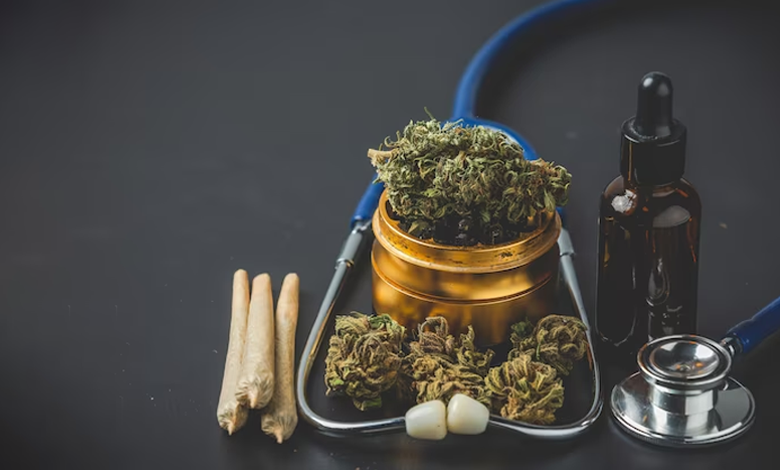
THCA flower has made waves in the ever-evolving landscape of cannabis products. As the industry expands and diversifies, it’s crucial to understand the distinctions between various cannabis products. There is a common question about whether the THCA flower is the same as a weed. To delve into this inquiry, we must first unpack what THCA flower is and how it differs from traditional marijuana.
Understanding THCA Flower:
The psychoactive compound in cannabis is THC (tetrahydrocannabinol), which is produced from THCA, or tetrahydrocannabinolic acid. The raw form of cannabis contains THCA instead of THC. When THCA is heated, such as when it is smoked or vaporized, it is decarboxylated.
THCA flower refers to cannabis buds that have been specially cultivated to preserve high levels of THCA while minimizing THC conversion. This preservation is achieved through careful harvesting and curing techniques that maintain the plant’s acidic compounds. There is a high concentration of THCA and other cannabinoids in this product, but there are no psychoactive effects associated with THC.
Contrasting THCA Flower with Traditional Weed:
Psychoactive Effects:
The primary distinction between THCA flower and traditional weed lies in their psychoactive effects. While marijuana high in THC can induce euphoria, altered perception, and other psychoactive sensations, THCA flower typically does not produce the same effects. This is because THCA itself is non-intoxicating until it undergoes decarboxylation.
Consumption Methods:
Traditional weed is often consumed through smoking, vaping, or ingestion after decarboxylation. In contrast, high THCA hemp flower is typically consumed in its raw form or through methods that do not involve heat application, such as juicing or incorporating it into smoothies. These methods preserve THCA’s acidic state and its potential therapeutic properties without activating its psychoactive effects.
Therapeutic Potential:
The therapeutic potential of the THCA flower is gaining attention. THCA has been studied for its anti-inflammatory, neuroprotective, and antiemetic properties. Some users prefer THCA flower for its medicinal potential without experiencing the intoxicating effects associated with THC-rich marijuana.
Legal Status:
Regional regulations may affect the legal status of THCA flower. In some jurisdictions, THCA flower may be classified differently from traditional marijuana due to its non-intoxicating nature. Regarding the cultivation, sale, and use of THCA flower, it is important to consult local laws and regulations.
Benefits of THCA Flower:
Non-Intoxicating:
THCA flower may offer therapeutic benefits without the psychoactive effects of cannabis. Its non-intoxicating nature makes it suitable for daytime use or situations where cognitive clarity is desired.
Therapeutic Potential:
Research into the therapeutic properties of THCA is ongoing, with promising findings indicating its potential efficacy in managing various health conditions. From chronic pain to neurological disorders, THCA shows promise as a valuable addition to the medicinal cannabis landscape.
Diverse Consumption Methods:
Smoking and vaping are not the only ways to consume THCA flower, providing users with versatility. From raw ingestion to juicing or incorporating it into edibles, the options for experiencing THCA’s benefits are diverse and adaptable to individual preferences.
Potential Entourage Effect:
Like other cannabinoids, THCA may interact synergistically with other compounds present in cannabis, a phenomenon known as the entourage effect. By preserving the plant’s natural profile, the THCA flower allows users to benefit from this interplay of compounds for enhanced therapeutic effects. To get more information about THCA Flower, visit ATLRx.
Conclusion:
In conclusion, THCA flower represents a distinct category within the realm of cannabis products, offering unique properties and potential benefits compared to traditional weed. While both share origins in the cannabis plant, their differences in psychoactive effects, consumption methods, and therapeutic potential set them apart. Cannabinoids continue to evolve, and THCA flower is emerging as a promising option for those seeking cannabis’ therapeutic potential without its intoxicating effects. However, it’s essential to navigate legal frameworks and consult healthcare professionals before incorporating THCA flower into one’s wellness regimen. By elucidating the distinctions between THCA flower and traditional weed, we can foster informed decisions and further explore the diverse landscape of cannabis products.